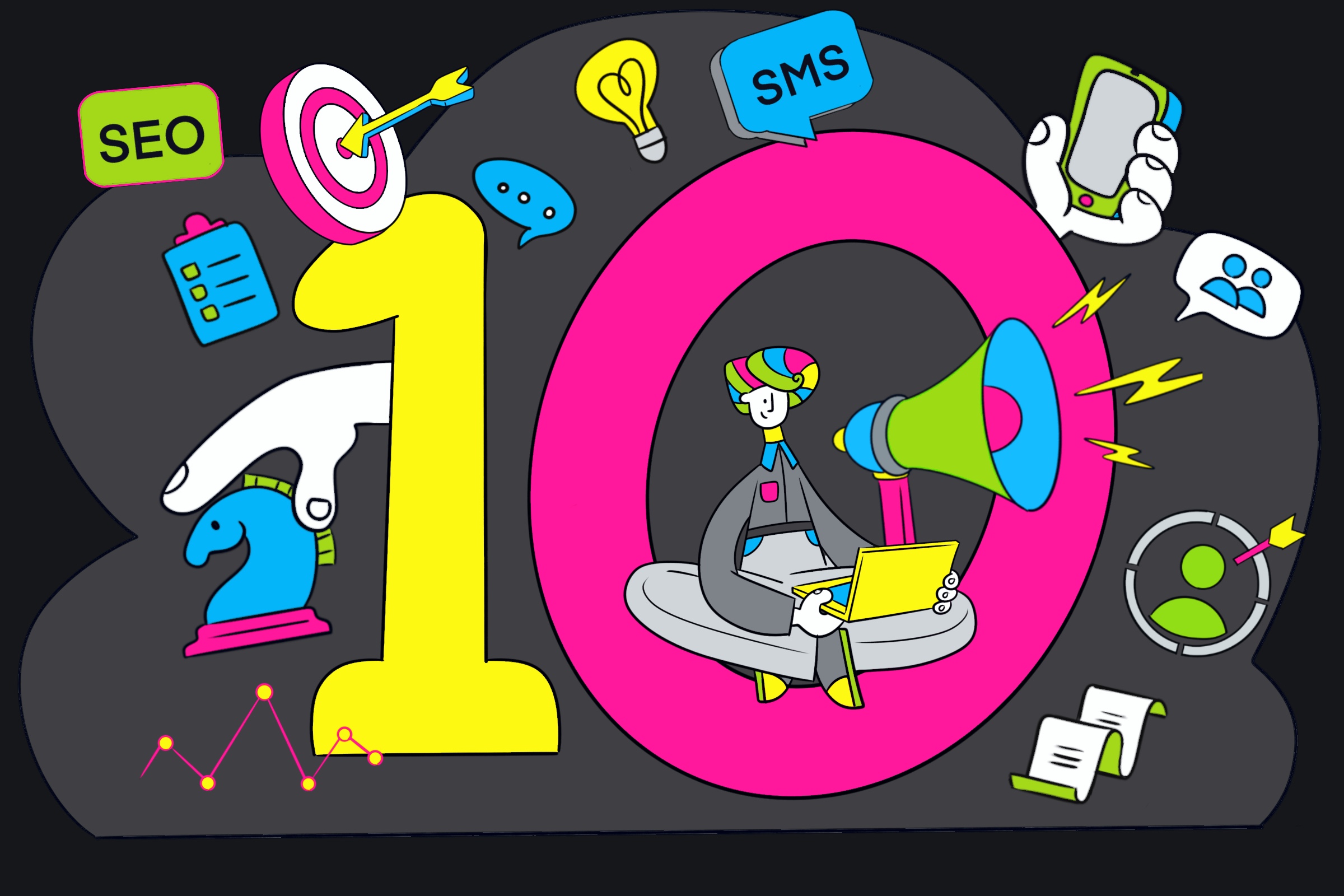Hey there, ambitious entrepreneurs and small business owners! Welcome to a digital marketing adventure tailored just for you. As small business owners, you need to harness the power of digital marketing to compete and thrive. With the right strategies in place, small businesses can reach their target audience, increase brand awareness, and boost sales.
In this article, Zigma8 will explore ten effective digital marketing strategies that are practical and can be implemented by small businesses. Let us start!
How Small Businesses Can Start Their Digital Marketing Strategies?
Ready to conquer the digital world? Let’s dive into simple yet effective ways for small businesses to begin their digital marketing journey and thrive online. From setting clear goals to building an engaging website and connecting with your audience through social media, Zigma8 has got you covered. Let’s make your digital dreams a reality!
- Define Your Target Audience
Before diving into any digital marketing strategy, it is crucial to identify and understand your target audience. Define the audience demographics, interests, and pain points to tailor your marketing efforts accordingly. This will help you create relevant and engaging content that resonates with your audience. - Build a Professional Website
Your website is the cornerstone of your digital presence. Ensure that it is visually appealing, user-friendly, and optimized for search engines. Include essential information about your business, products, and services, and make it easy for visitors to contact you or make a purchase. - Search Engine Optimization (SEO)
Implementing SEO techniques on your website can significantly improve its visibility on search engine result pages. Optimize your website’s meta tags, headings, content, and images with relevant keywords. Focus on local SEO to target customers or other target locations to increase your chances of appearing in local search results. - Content Marketing
Creating valuable and informative content is an effective way to attract and engage your target audience. Start a blog on your website and regularly publish articles, guides, or videos that address your audience’s pain points or provide solutions to their problems. Share your content on social media platforms to expand your reach locally. - Social Media Marketing
Leverage the power of social media platforms (Instagram, Telegram, Twitter, Youtube, and Threads) to connect with your audience, build brand awareness, and drive traffic to your website. Identify the platforms where your target audience is most active and create engaging and shareable content. Interact with your followers, respond to comments, and use social media advertising to reach a wider audience. - Email/SMS Marketing
Email/SMS marketing are cost-effective strategies that allow you to nurture leads and build a loyal customer base. Create an opt-in form on your website to collect email addresses/phone numbers and send targeted emails/messages with personalized offers, promotions, or newsletters. Make sure your content provides value and is not overly promotional. - Online Reviews and Testimonials
Positive online reviews and testimonials can significantly impact a small business’s reputation and credibility especially. Encourage satisfied customers to leave reviews on platforms such as Google My Business, or industry-specific review websites. Respond to both positive and negative reviews promptly and professionally. - Pay-Per-Click (PPC) Advertising
PPC advertising allows you to display ads on search engine result pages or social media platforms and pay only when someone clicks on your ad. Set a budget, identify relevant keywords, and create compelling ad copy to drive targeted traffic to your website. Monitor your campaigns regularly and optimize them for better results. - Influencer Marketing
Collaborating with influencers in your industry can help you reach a wider audience and build trust. Identify influencers whose values align with your brand and engage them to promote your products or services. This strategy can be particularly effective for small businesses with limited marketing budgets. Read more: Influencer Marketing: Strategies for Leveraging Social Media Influencers in Your Marketing Plan - Analytics and Tracking
Implement tracking tools such as Google Analytics to measure the effectiveness of your digital marketing efforts. Monitor key metrics such as website traffic, conversion rates, bounce rates, and social media engagement. Use these insights to refine your strategies and make data-driven decisions.
Overall, implementing effective digital marketing strategies is essential for small businesses to thrive in today’s competitive landscape. Zigma8 branding and advertising agency recommend you to stay consistent, adapt to changing trends, and always prioritize providing value to your audience. And if you need an expert to conquer the market, hit us up!










